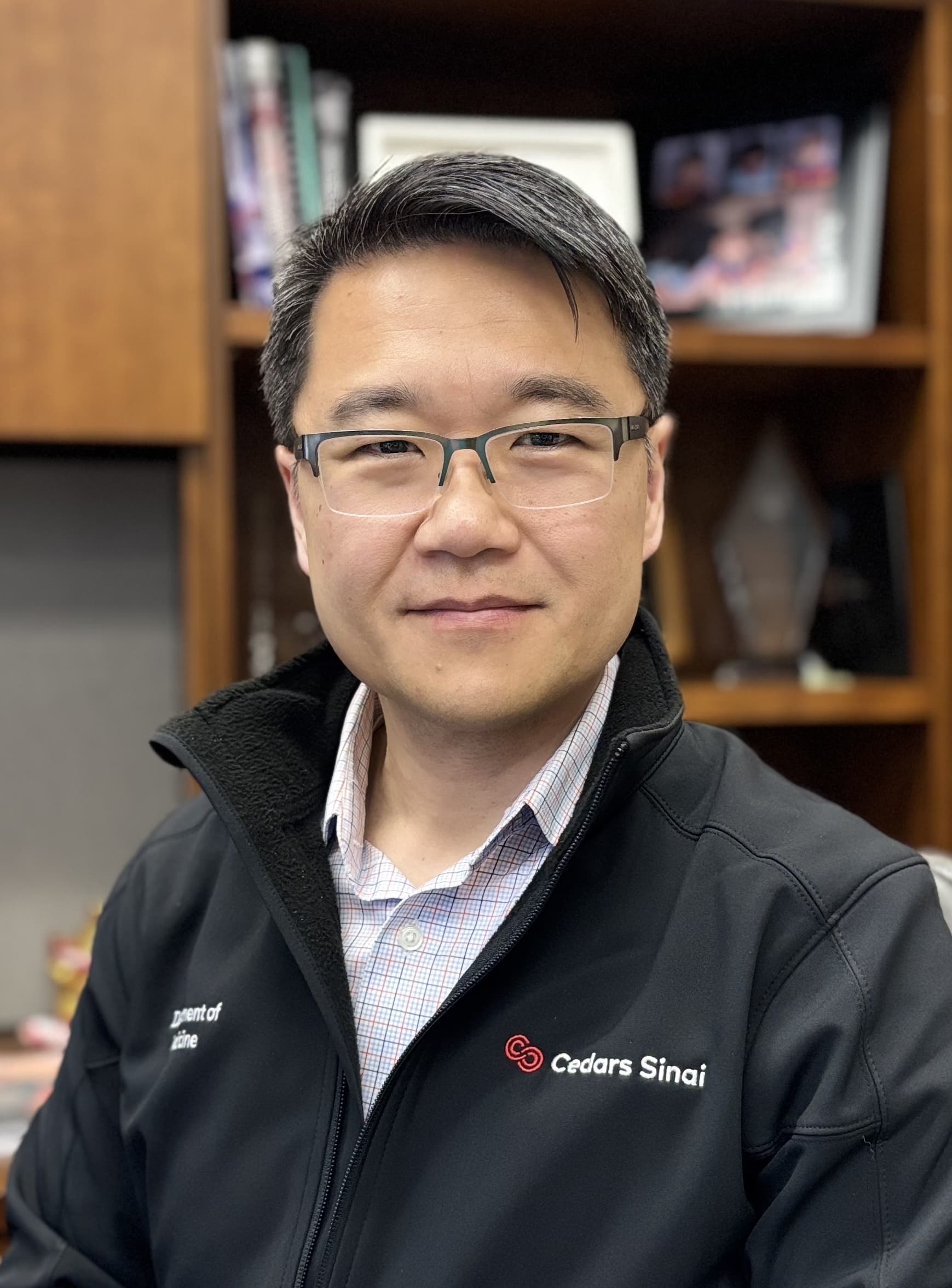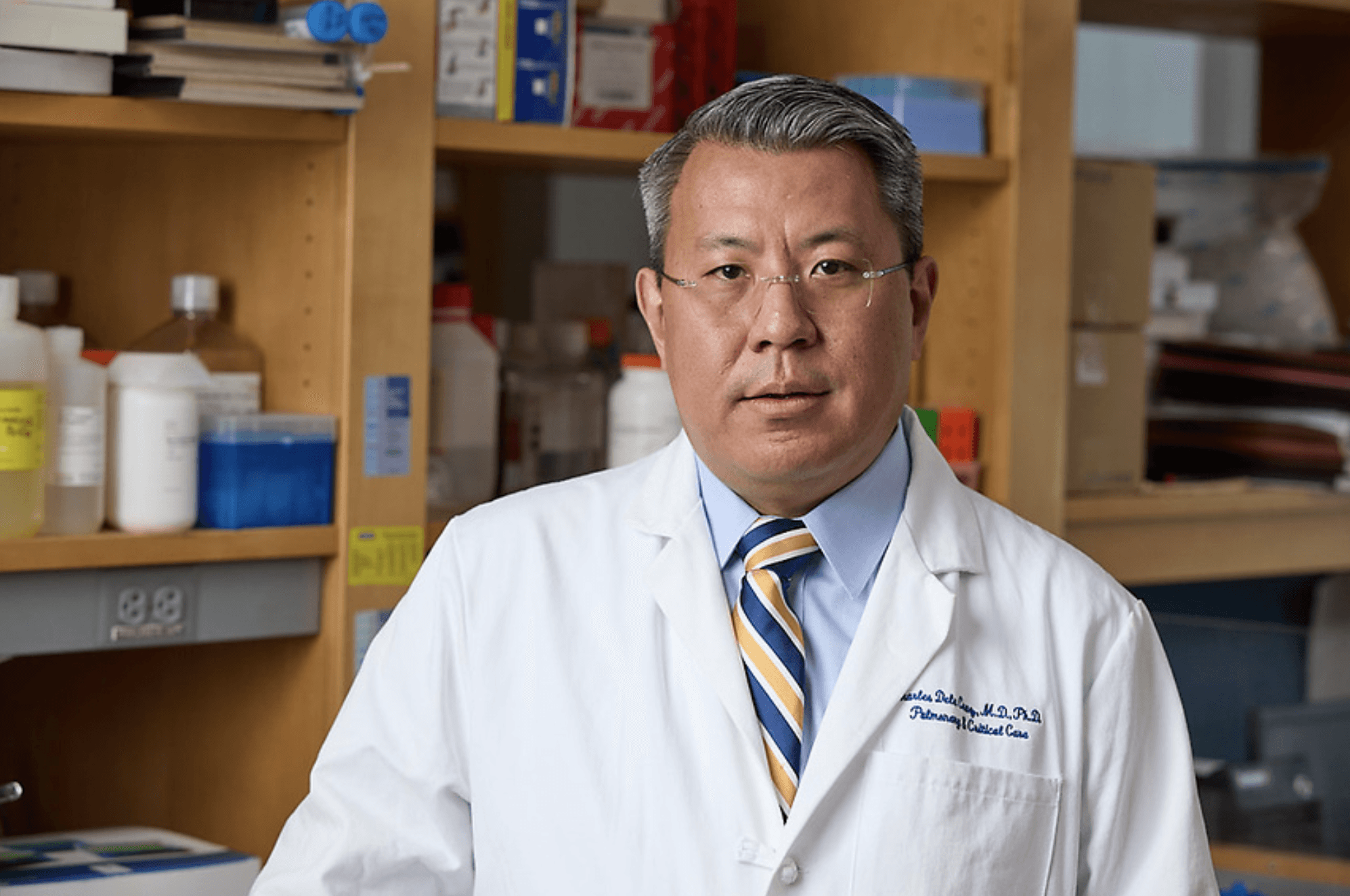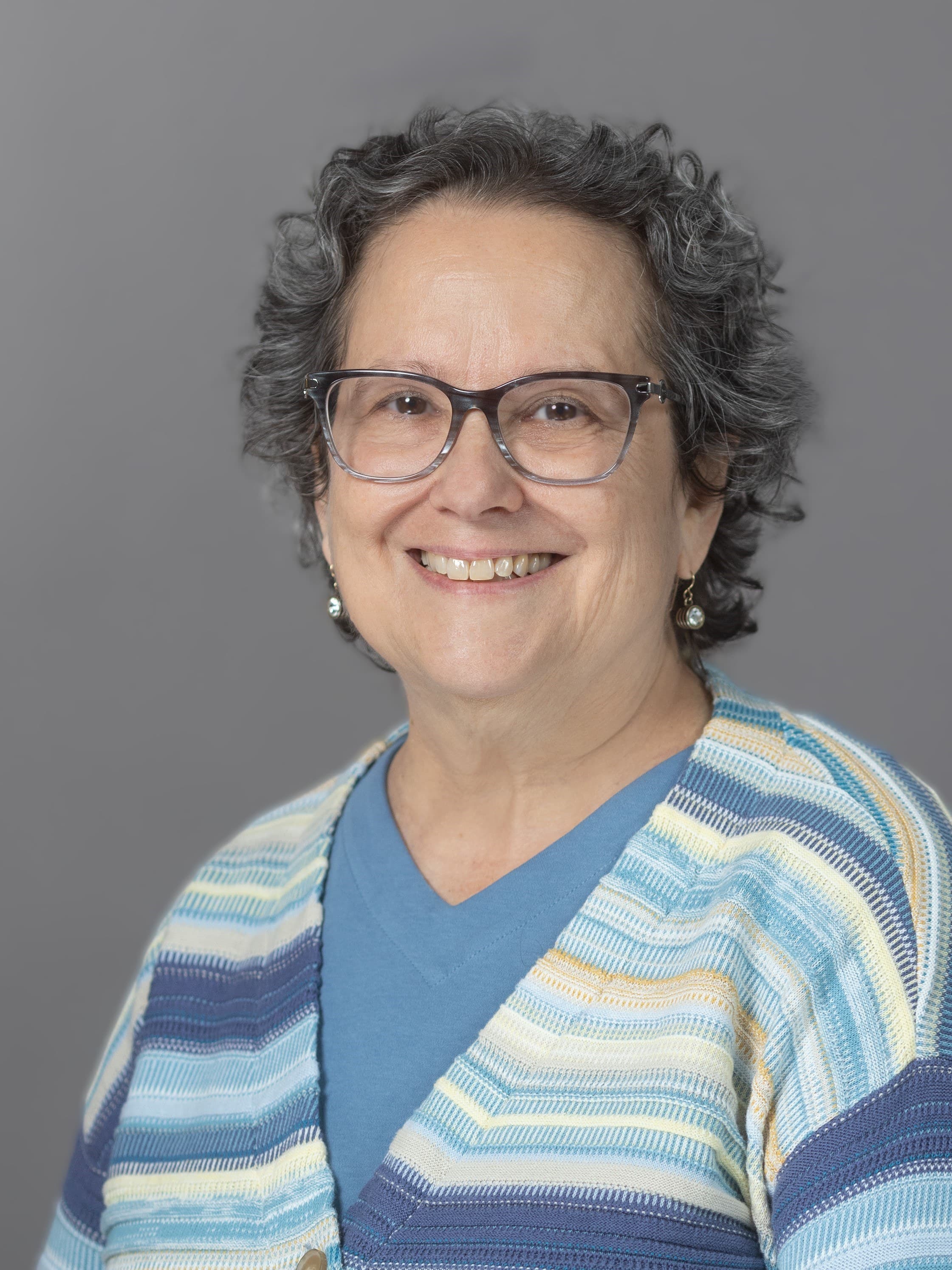Recognition Award for Scientific Accomplishments recognizes outstanding scientific research contributions in basic or clinical arenas to enhance the understanding, prevention and treatment of respiratory disease, critical illness, or sleep disorders and recognizes exemplary professionalism, collegiality and citizenship through mentorship and scientific involvement in the ATS community. Candidates may be considered for contributions made throughout their careers or for major contributions made at a particular point in their careers. Awardees will make a 25-minute presentation on their research. Up to four awards may be given each year. The potential of the nominee to deliver an outstanding presentation should also be considered. Potential candidates who are previous recipients of the Amberson Lecture or the Trudeau Medal are ineligible for the Recognition Award for Scientific Accomplishments.
Peter Chen, MD

Peter Chen, MD obtained a BS in Electrical Engineering from the University of Texas, his MD from Baylor College of Medicine, and then trained in Internal Medicine at UT Southwestern. Subsequently, he did his fellowship in Pulmonary and Critical Care Medicine at the University of Washington where he also started basic research training in lung biology. He began his academic career as an Assistant Professor at the University of Washington and rose to the rank of Associate Professor before being recruited to Cedars-Sinai Medical Center (CSMC) in 2013 to become the Director of the Division of Pulmonary and Critical Care Medicine and where he is currently a Professor of Medicine and Biomedical Sciences.
At the start of his research career, Dr. Chen had an initial focus on matrix biology and provided insight into the biological functions of syndecan-1, a proteoglycan expressed by the lung epithelium. His early work was foundational in building a concept whereby syndecan-1 shedding sits at the intersection of injury, inflammation, and repair through recruitment of inflammatory cells and activation of reparative pathways. Because influenza is a respiratory pathogen that infects the lung mucosa, much of his studies have also focused on the acute mucosal response to this deadly virus and identified novel pathways regulating lung immunity and repair after infection. As his career evolved, Dr. Chen broadened his research program to study lung mucosal immunity and revealed aberrant repair responses that drive chronic lung dysfunction such as fibrosis.
At the start of the COVID-19 pandemic, he quickly adapted his research program and made contributions into the mechanisms causing an aberrant immunologic response to injury leading to ARDS and a poor humoral response to the COVID-19 vaccine and conducted epidemiological studies on risk factors that determine COVID-19 severity. Dr. Chen also played an instrumental part in developing monoclonal antibodies as a therapy for mild-to-moderate COVID-19. As the COVID-19 pandemic evolved, he has refocused his efforts into studying the long-term consequences that drive the development of post-acute sequelae of SARS-CoV-2 (PASC aka long COVID). He discovered maladaptive signaling networks that contribute to fibroproliferation after viral infections and is focused on identifying mechanisms of PASC symptoms.
Jason D. Christie, M.D., M.S.

Jason D. Christie, M.D., M.S. is the Chief of the Pulmonary, Allergy, and Critical Care Division, The Paul F. Harron Jr. Family Chair, and Professor of Medicine and Epidemiology at the University of Pennsylvania. His career is focused on translational research studies of the risks, pathogenesis, treatment, and outcomes of acute lung injury in the transplant and non-transplant critically ill populations. Dr. Christie’s research integrates new knowledge generated from bench studies with epidemiology approaches in well-phenotyped, large human populations to generate new definitions of human syndromes, improved diagnostics and prognostics, and targeted therapy approaches in advanced lung diseases and acute organ dysfunction in critical illness. His leadership and research achievements have been recognized with membership in the American Society of Clinical Investigation and the Association of American Physicians.
Dr. Christie defined the syndrome of primary graft dysfunction following lung transplantation and elucidated its clinical and molecular epidemiology. Dr. Christie led the international efforts that developed and validated the syndrome definition, then led large consortium efforts that identified the major clinical risk factors. He further discovered novel biological associations in human populations that have defined the pathophysiology as driven by donor lung injury cellular leading to early innate immune response in the lung and host. These discoveries have directly led to pharmacotherapies and prediction strategies. In all of these efforts, Dr. Christie pulled together the lung transplant community as an energetic, effective, and visionary leader.
Beyond post-transplantation lung injury, Dr. Christie also advanced our molecular understanding of acute respiratory distress syndrome (ARDS). He led the first genome-wide association study of ARDS, several functional genomic studies of ARDS candidate genes with potential therapeutic implications, highlighted complement activation, and identified ABO as major pathways contributing to ARDS.
Dr. Christie is a dedicated mentor. He has published over 200 articles with mentees during their training periods. He has served as primary mentor on over 20 career development awards, and majority of these mentees have achieved independent funding. His mentoring efforts have been recognized by the Arthur Asbury Outstanding Faculty Mentoring award, the highest such award granted by the University of Pennsylvania Perelman School of Medicine.
Charles S. Dela Cruz, MD, PhD, ATSF

Charles S. Dela Cruz, MD, PhD, ATSF is a Professor of Medicine at the University of Pittsburgh School of Medicine, where he also serves as the Director of the Center for Acute Lung Injury and Infection (ALII), Associate Dean for Faculty Research, and Deputy Associate Chief of Staff for Research at the VA Pittsburgh Healthcare System. Dr. Dela Cruz earned his B.Sc. in Immunology and completed his MD/PhD at the University of Toronto, followed by his medical degree from the Yale School of Medicine. He went on to complete an Internal Medicine residency and a fellowship in Pulmonary and Critical Care Medicine.
Dr. Dela Cruz has held faculty roles at Yale School of Medicine, where he founded the Center for Pulmonary Infection Research and Treatment (CPIRT), and in 2023, he joined the University of Pittsburgh and VA Pittsburgh Healthcare System. His research focuses on respiratory infections, lung injury, and immune regulation, and he has authored 158 peer-reviewed publications. His groundbreaking work has identified host modulators in bacterial and viral infections, such as chitinase and chitinase-like proteins, interleukin-15, and interferons, which play a significant role in inflammation, injury, and fibrosis. During the COVID-19 pandemic, Dr. Dela Cruz co-led numerous studies at Yale that contributed to identifying critical immune responses and biomarkers.
Clinically, Dr. Dela Cruz has extensive experience in the Medical Intensive Care Unit and pulmonary consult services at both Yale and the VA Connecticut Healthcare System. He directed Yale’s NTM Infection Clinic and currently practices at the VA Pittsburgh Healthcare System. He has chaired workshops for the American Thoracic Society (ATS) focusing on pneumonia research, understanding the host in pneumonia management, and developing bacterial infection models to study pneumonia, as well as creating clinical practice guidelines for viral diagnostics.
Dr. Dela Cruz has been an influential mentor, guiding numerous trainees who have secured prestigious awards, including NIH K awards and Parker B. Francis Fellowships. He directed Yale’s Physician Scientist Training Program and now co-leads the University of Pittsburgh’s PICTOR Program, an NIH-funded physician-scientist development initiative. He also spearheads collaborative initiatives at the Dean’s office.
Throughout his career, Dr. Dela Cruz has taken on numerous leadership roles, including serving as the PITB Assembly Chair for ATS, chairing the Lung Cell Mediated Immunity NIH study section, and acting as Associate Editor for JCI Insight. He has co-edited Fishman’s Pulmonary Diseases and Disorders and chaired the Gordon Research Conference on the Biology of Acute Respiratory Infection.
Dr. Dela Cruz’s research, clinical contributions, and leadership have significantly advanced the understanding of lung diseases, particularly in the areas of pulmonary infections. His current research focuses on understanding host lung and organ responses to respiratory infections, with an emphasis on translating these findings to improve pneumonia outcomes. His continued leadership in the field drives innovation and the development of future leaders in medicine.
Anne Sperling, PhD, ATSF

Anne Sperling, PhD, ATSF joined the faculty at the University of Virginia in September 2021 after spending 25 years at the University of Chicago. Dr. Sperling is an active member of the American Thoracic Society, holding multiple positions including being the Chair of the ATS Assembly on Asthma, Inflammation, and Immunology.
Dr. Sperling’s research program focuses on the roles of the immune system in lung diseases such as asthma, lung injury, and idiopathic pulmonary fibrosis. She has made important discoveries about how the “farm effect” protects children from asthma, how dendritic cells drive Th2 responses, how T cell costimulatory molecules influence type 2 inflammation and protect against lung injury, how type 2 alarmins such as IL-33 impacts immunity in mice and humans, and how the immune response impacts lung injury and the progression of pulmonary fibrosis. Through her 130+ publications in journals such as New Engl J Med, Immunity, J Clin Invest, Nature Commun, J Exp Med, Blood, Mucosal Immunol and J Immunology, Dr. Sperling has established herself as a preeminent lung immunologist.
Dr. Sperling served as the Director of the University of Chicago Respiratory Biology T32 Training grant. In that capacity, she personally provided career development mentorship to more than 25 MD and PhD fellows, and continued work with many of them during their early career period. At UVA, she has recently taken over the Directorship of the Immunology Training T32 Program and is the Associate Chief for Research in the Pulmonary and Critical Care Division. Her past and current trainees include 17 MD or PhD post-doctoral fellows and 15 graduate students including 2 MSTPs, and more than 40 undergraduate students. The success of her trainees, and her directorships of T32s underscore her commitment to educating the next generation of scientists and physician scientists.